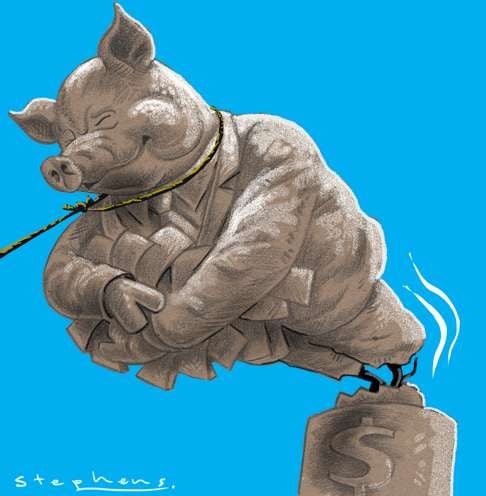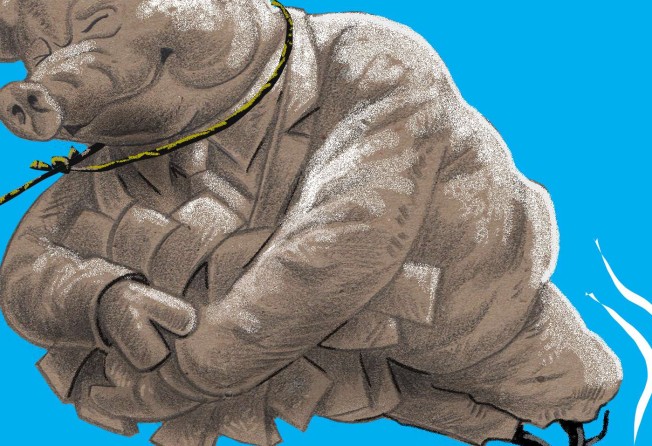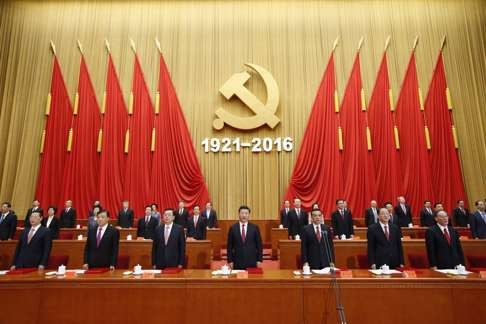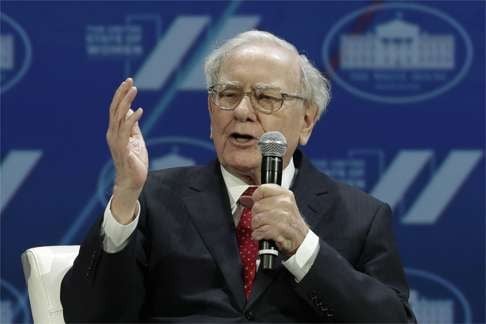
Xi Jinping, the champion of Marxism, may find unlikely comrades in critics of Western capitalism
Tom Plate says while Xi’s reassertion of ideology may be a bid to legitimise the Communist Party, his rejection of the Western status quo chimes with a growing number of voices pointing to capitalism’s failures


Xi, who is also party general secretary, laid down the party line anew on the occasion of its 95th anniversary celebration, in the Great Hall of the People on Tiananmen Square. Only Marxism, he insisted, could have provided a scientific guide for the development of China, the party and the people – melding his complex nation into one of reasonable unity. The president admitted that this Marxism had to be suffused with Chinese ways to work, but that the party would be nowhere had Marxism not been its primary operating system.
To be sure, Xi’s reassertion of ideology was calculated to counter any flirtation in the party with pure neoliberal market economics, not to mention Western-style democratic governance. Just check out this revivalist line: “The whole party should remember – what we are building is socialism with Chinese characteristics, not some other –ism.” Xi’s address, televised nationally, was no discourse in economic theory, but an emphatic effort at legitimising the party’s continuance in power on the march towards the nation’s “great rejuvenation”. “Marxism must be the basic fundamental, guiding principle, or the party would lose its soul and direction,” Xi said.

Xi failed to mention it, however, but outside China, arguably, no Marxism in continuous practice has ever proven exemplary as a method of managing a nation’s economy. For China to have added those many touches of “Chinese characteristics” is not proof of the validity of pure Marxist orthodoxy but rather of the innate genius of Han improvisation.
Outside China, no Marxism in continuous practice has ever proven exemplary as a method of managing a nation’s economy
What’s more, sceptics and critics will be quick to note that, without the inherent Marxist need for control, the party might have lost power entirely. They will view Xi’s declaration as no more than an effort to rally ideological belief. For, as China’s growth rates slow (though still among the world’s highest), the view is that, without some secular religion for justification, Han society might come to seem no more than one big Chinese casino in which some gamblers lose, some gamblers win – but the party’s house management never loses.
Even so, while Xi’s primary target for the revivalist speech was the party elite (speaking of inequality!), the message might well offer a touch of appeal to a broader, non-Communist audience. Even in the most intelligent and best-performing Asian economies (say, Singapore and Hong Kong), the gap between rich and poor is widening, seemingly beyond immediate amelioration. Xi’s pitch echoes growing global doubts about the equity utility of neoliberal capitalist economics, which, though a proven wealth-producer, seems incapable of yielding broad-based fairness.

And so in the West, where capitalism has dominated, a neo-Marxist or postmodern Marxism now gets a second long look. If the richest 1 per cent hold more wealth than ever before, and the other 99 per cent are struggling as never before, and the physical globe overall looks to need a massive urgent injection of ecological protectionism, consideration of alternative approaches to running economies and setting priorities will be necessary. In American academic and foundation circles, for example, one detects the slow surfacing of a “postmodern Marxism” that does not foolishly propose to stamp out wealth-creating market forces (clearly a cure worse than the disease) but insists on a humanitarian neo-socialism that requires a governance system which stifles corruption and obscene profit-taking, and curbs the power of wealthy elites to shape social and economic policy so as to line their offshore pockets while pocketing preferred politicians.
Professor Philip Clayton, a California colleague who teaches at the well-respected Claremont School of Theology, has put it this way: “Most people find it counter-intuitive that a system motivated exclusively by greed and cutthroat competition would bring the greatest benefits to the greatest number of people. We now see that there is a good reason people find this claim counter-intuitive: it is false. Abuses are only overcome when governments, multinational agencies, labour groups, consumer advocates and a well-organised system of checks and balances all serve as watchdogs over market competition.” And let us get this out of the way: Clayton – with a PhD from Yale University and a background that includes teaching at Williams College, Harvard and Cambridge – is no kook.

In Europe, many agree with such views as that of Jacques Derrida, the late French philosopher – that the “triumph” of capitalism in the West has only served to “highlight its own failures, as human suffering continues and environmental catastrophe appears inevitable”. At the least, the relentless ecological crisis and frightening rich-poor divide require us to open our minds to alternatives ways – or at least profound modifications – of current canons of governance and economic management.
This does not mean, as the saying goes, that one throws the baby out with the bathwater: capitalism, after all, does create wealth. But at what corollary costs? And for whom? The well-known Methodist theologian and Marxist theorist Joerg Rieger is fond of praising US billionaire Warren Buffett for saying that “there is such a thing as class warfare and that his class is winning it”.
You don’t have to be a Marxist – with or without Chinese characteristics – to seriously question the continued validity of status quo liberal-democratic governance. Xi is hardly the only one in the world who appears to find this transparently obvious.
Columnist and professor Tom Plate is distinguished scholar of Asian and Pacific Studies at Loyola Marymount University and author of the series Giants of Asia